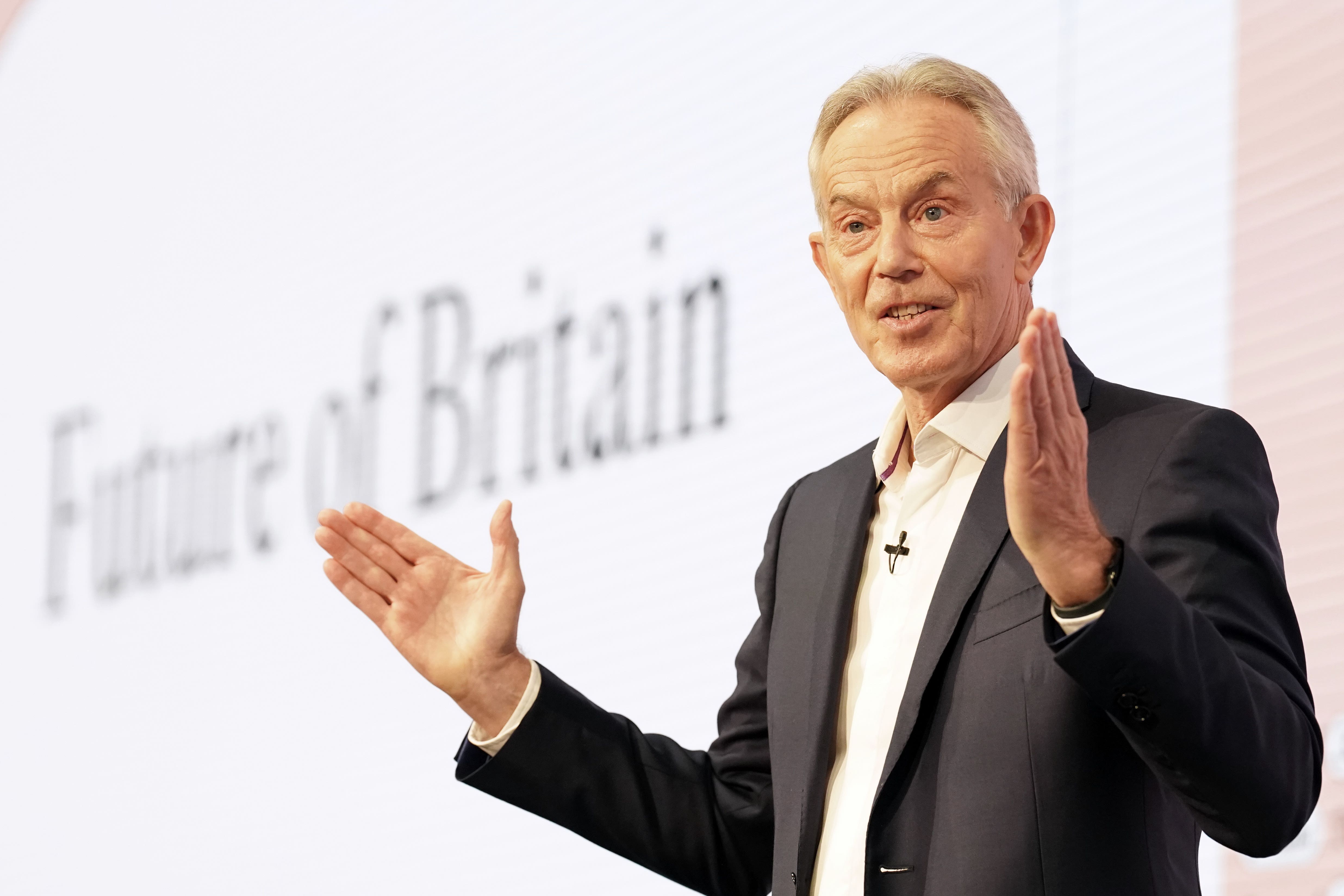Scotland not being independent means devolution has worked, says Blair
Sir Tony Blair was the prime minister who legislated for a Scottish Parliament.

Your support helps us to tell the story
From reproductive rights to climate change to Big Tech, The Independent is on the ground when the story is developing. Whether it's investigating the financials of Elon Musk's pro-Trump PAC or producing our latest documentary, 'The A Word', which shines a light on the American women fighting for reproductive rights, we know how important it is to parse out the facts from the messaging.
At such a critical moment in US history, we need reporters on the ground. Your donation allows us to keep sending journalists to speak to both sides of the story.
The Independent is trusted by Americans across the entire political spectrum. And unlike many other quality news outlets, we choose not to lock Americans out of our reporting and analysis with paywalls. We believe quality journalism should be available to everyone, paid for by those who can afford it.
Your support makes all the difference.Scotland not being independent shows devolution has worked, Sir Tony Blair has said.
Sir Tony was the prime minister who legislated for the Scottish Parliament after a referendum in 1997.
While the former prime minister did not claim the goal of devolution to be to end the Scottish independence movement, Lord Robertson – whom he appointed shadow Scottish secretary in 1995 – said devolution would “kill nationalism stone dead”.
But 25 years on from the opening of the Scottish Parliament, support for independence remains around 50% of respondents to opinion polls.
Speaking to Holyrood magazine, the former prime minister said: “I do reflect on devolution a lot, and occasionally do think what should we or could we have done differently but, on the whole, I’m still of the same opinion as I was back then, which is that devolution had to happen, otherwise you’d leave Scottish people with the choice of status quo or independence, and Scotland is still part of the UK, which was part of the design – so devolution has worked, as far as I am concerned.”
He later added: “Whatever people think about Brexit, even if they’re ambivalent about it – and I obviously think it’s a terrible thing, but even if you’re ambivalent about it – you’re kind of thinking, this is a huge mess, and therefore, do we really want to gamble with the Scottish economy that is, by the way, much, much more linked to the British economy than the British economy is to Europe? Do we want to gamble with that?”
The independence movement – spearheaded by the SNP – has found itself in a stalemate with the UK Government in recent years.
Repeated requests for the powers to hold a second referendum have either been rejected or gone ignored in the years since the cause lost the 2014 vote.
Former first minister Nicola Sturgeon then sought approval from the UK Supreme Court to hold a plebiscite without Westminster approval, which the judges rejected.
The SNP then cycled through multiple positions about how to treat the upcoming election.
If the party wins a majority of seats north of the border in the July 4 poll, it will seek to give “democratic effect” to the desire for independence, which First Minister John Swinney said last week would mean seeking another referendum.